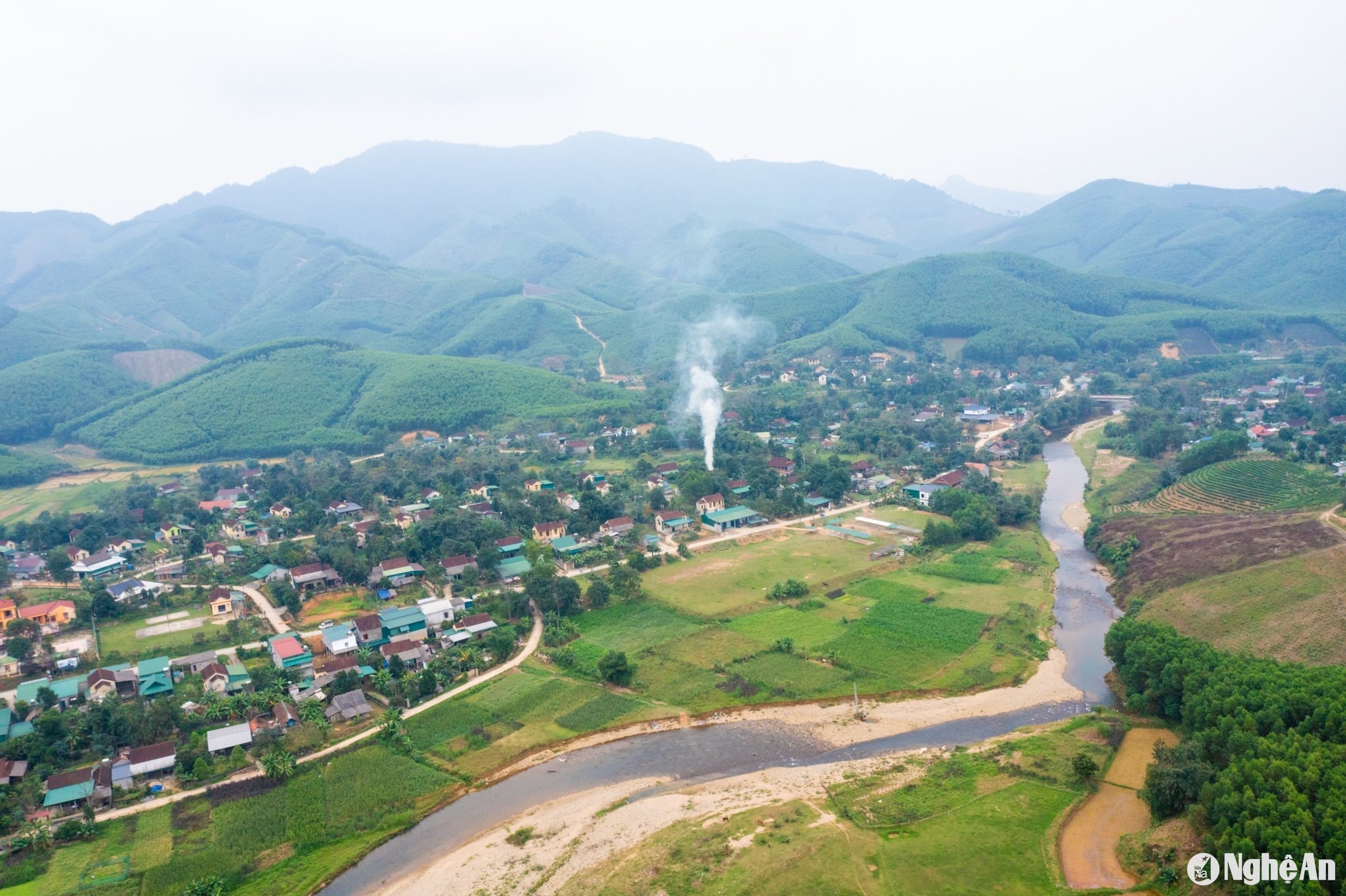Part 1: Need to innovate voter contact activities
In recent times, the activities of contacting voters of National Assembly deputies and People's Councils at all levels have had positive innovations, contributing to connecting the will of voters with elected bodies, achieving many encouraging results. However, practice also shows that many shortcomings still exist, there are still formal voter contacts, with the main participation of "electors" and "professional voters".
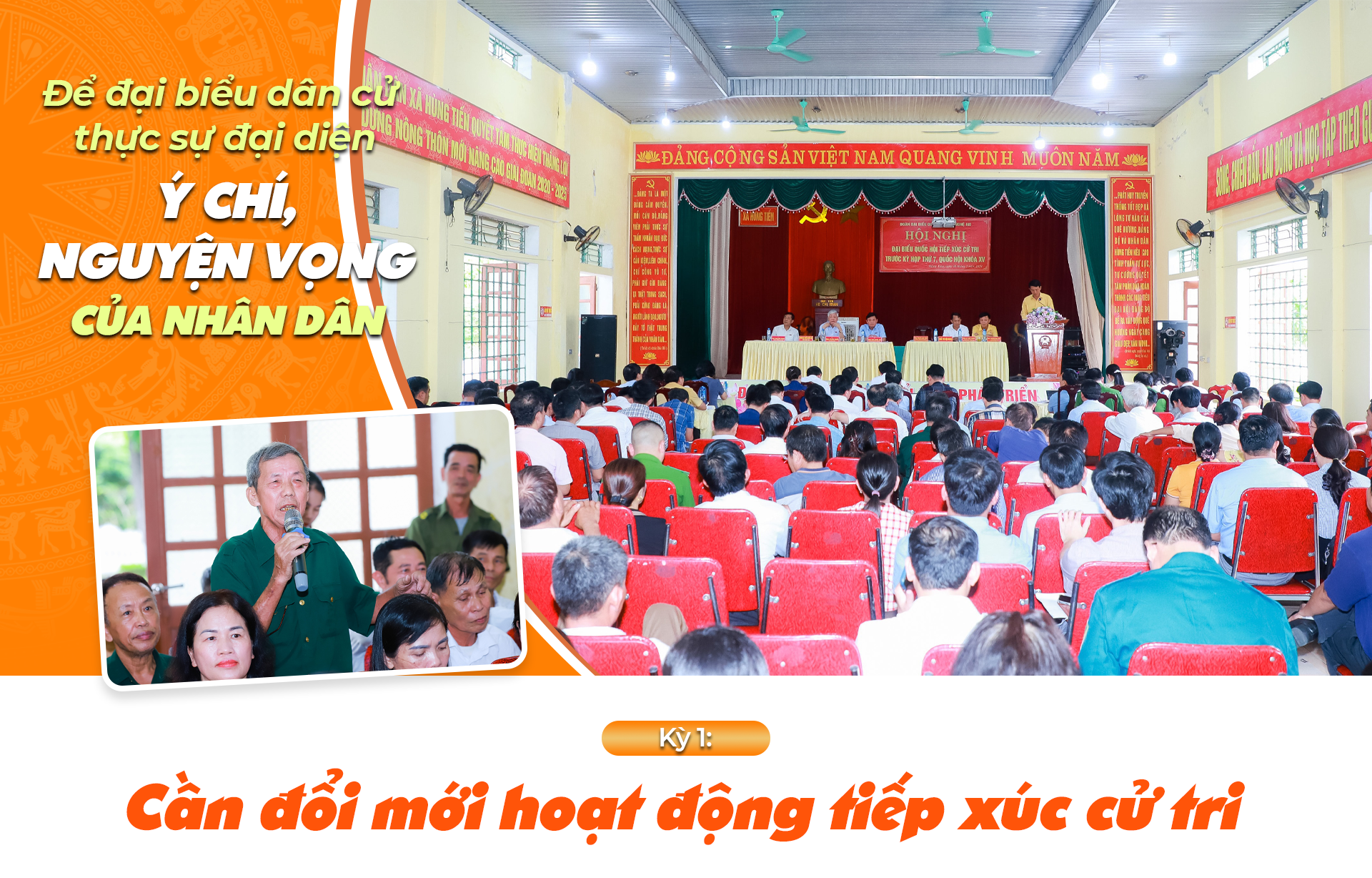
News and Political Reporters Group• November 19, 2024
In recent times, the activities of contacting voters of National Assembly deputies and People's Councils at all levels have had positive innovations, contributing to connecting the will of voters with elected bodies, achieving many encouraging results. However, practice also shows that many shortcomings still exist, there are still formal voter contacts, with the participation mainly of "electors" and "professional voters". This makes the collection of opinions, reflecting the real thoughts and aspirations of the majority of people not as effective as expected.

Meeting with voters is one of the important tasks of elected representatives as prescribed by law. Performing well the work of meeting with voters, promptly resolving opinions, recommendations, legitimate aspirations and concerns of voters will contribute to maintaining political stability and social order and safety in the locality, while enhancing the role and position of elected representatives, thereby improving the effectiveness of the activities of the National Assembly and People's Councils at all levels.
However, in reality, there are still problems with the form of voter contact, the composition of voter contact conferences, the content of the meetings, the quality, effectiveness, and the substance of voter contact activities... That is, voter contact activities of National Assembly deputies (NA deputies) and People's Council deputies at all levels mainly focus on before and after sessions. New deputies conduct contact with voters in their constituencies. Voter contact meetings are still not really in-depth and wide-ranging; the program, time, and location of voter contact are mainly at the halls of the People's Committees at the commune level, and the composition of voter contact conferences is mainly representative voters, "professional voters".
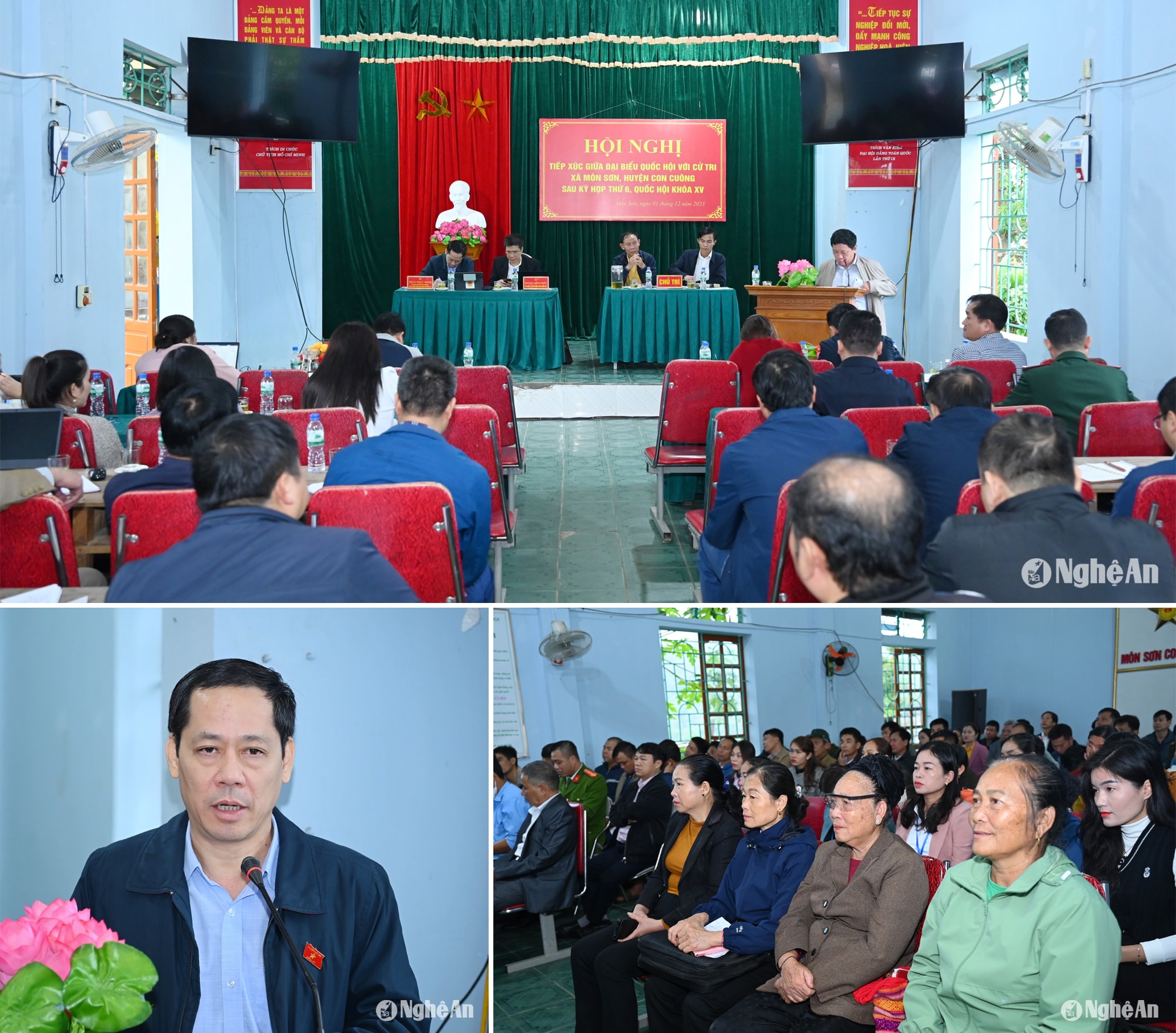
The main form of voter contact is general contact by delegations, and contact with voters at their residence, workplace, or by topic or group of subjects has not been expanded, especially at the commune level. Direct meetings and dialogues to understand the thoughts and aspirations of voters and issues of concern to voters have not been carried out by many delegates, so the results of voter contacts are still limited. Voters' recommendations sent to competent authorities have not been resolved completely and are still prolonged.
After voter meetings, the work of synthesizing and classifying voters' opinions and recommendations is sometimes slow and incomplete. The resolution of some voters' recommendations sent to People's Council meetings at all levels under the responsibility of some competent authorities has not been resolved thoroughly and thoroughly, etc. There are issues that voters have repeatedly raised in many voter meetings, but have not yet received satisfactory answers from competent authorities, so they have not met the voters' expectations and satisfaction.
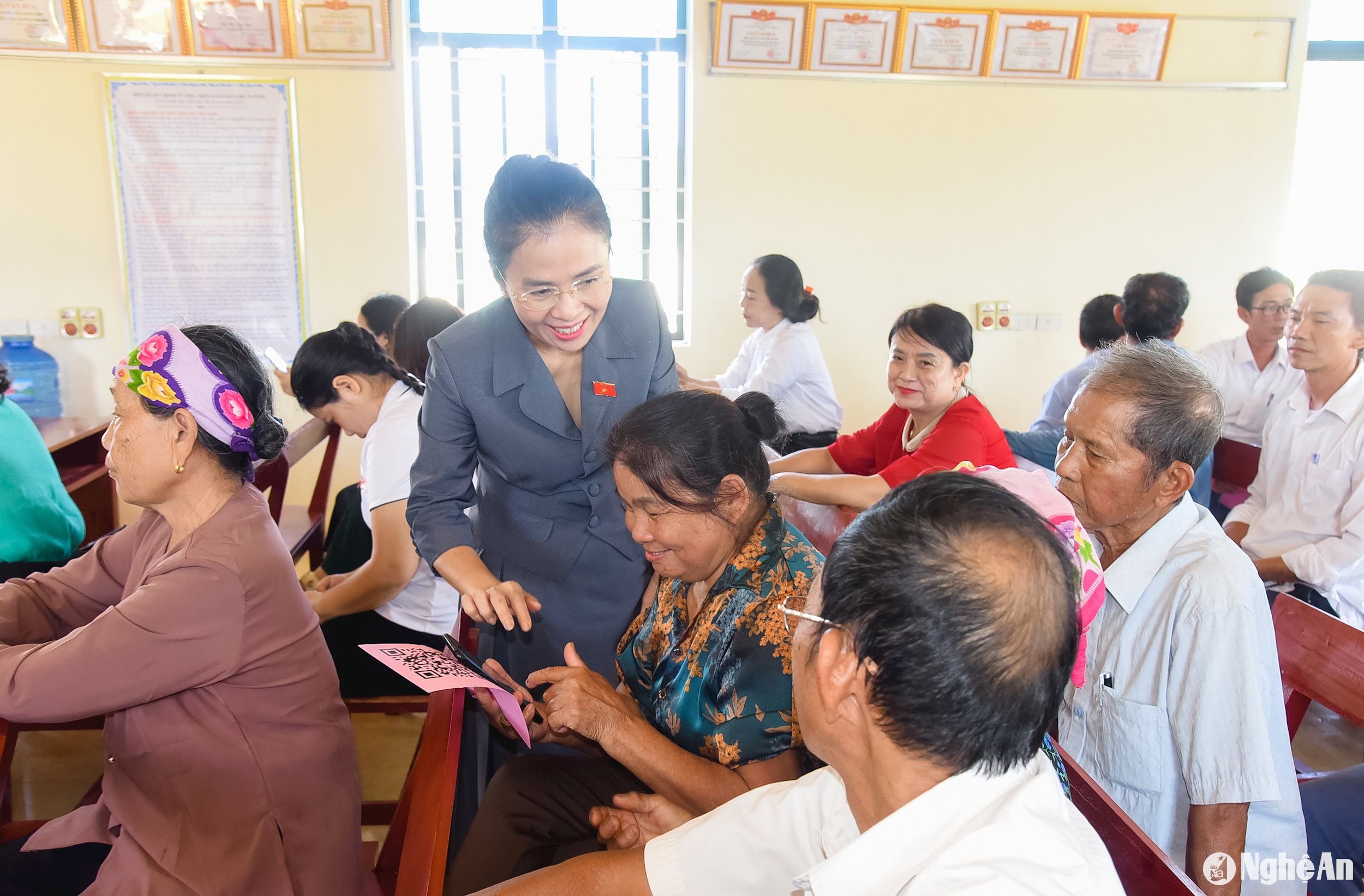
In Nghe An, through the summary of 10 years (2012 - 2022) of the implementation of Joint Resolution No. 525/NQLT/UBTVQH13-DCTUBTWMTQVN on contact with voters of National Assembly deputies (Joint Resolution), it was pointed out that: "Voter contact activities of National Assembly deputies are mainly carried out in the form of contact with voters before and after the session, and there have not been many and regular meetings with voters by topic, field, group of voters, or contact with voters outside the locality".
The above situation does not only occur in Nghe An. In July 2023, the National Assembly Standing Committee summarized and reviewed 10 years of implementing Joint Resolution 525/NQLT/UBTVQH13. At this conference, Vice Chairman of the National Assembly Nguyen Khac Dinh shared: “Through the practice of participating in the National Assembly, participating in the activities of National Assembly delegations and attending a number of thematic sessions with other delegations, it shows that contact with voters is very important. However, currently, as the assessment report shows, there are mainly contacts before and after the session, while thematic contacts, contacts at work and at residence are very few. Thematic contacts are 3%, and at residence is about more than 1%”.
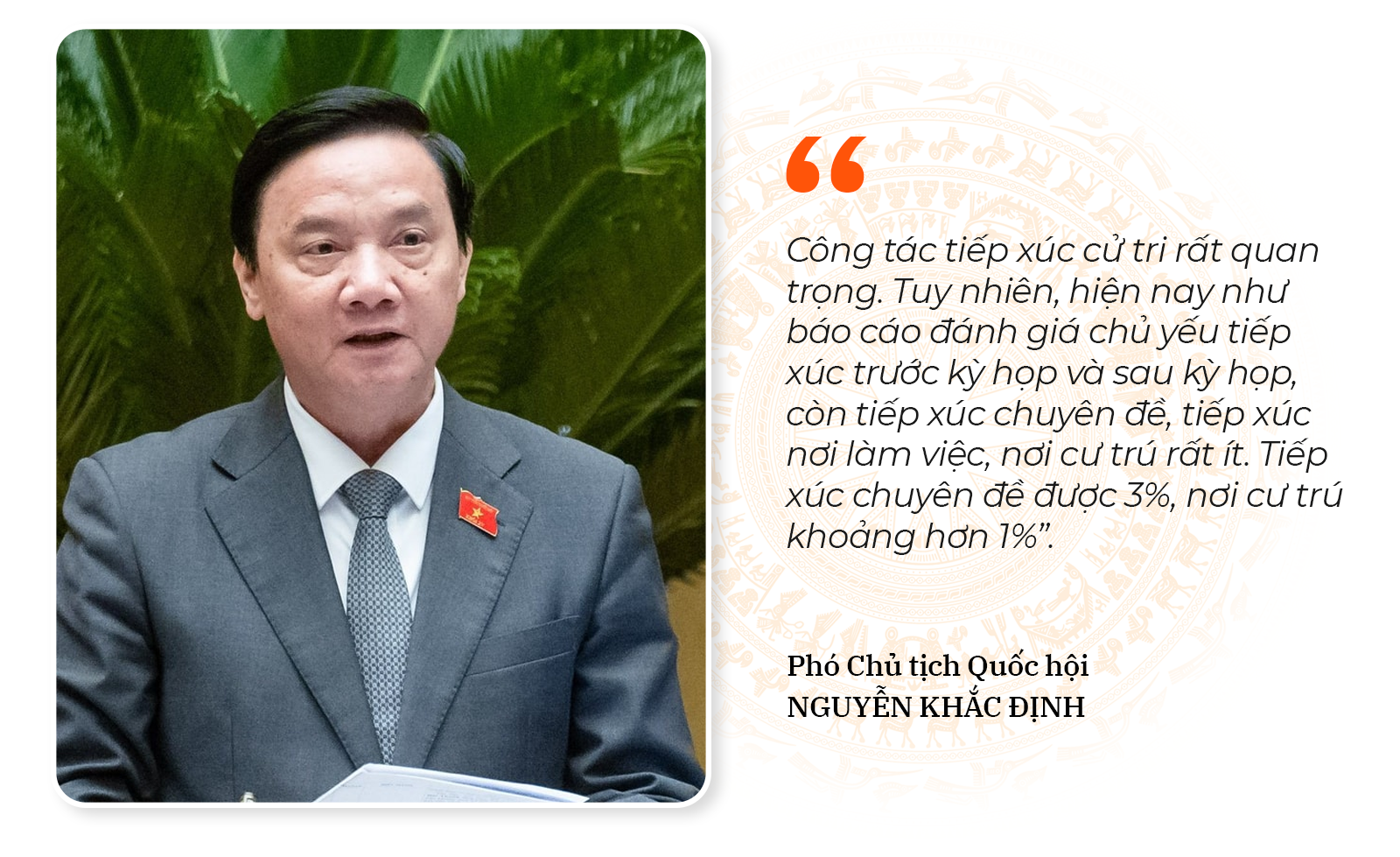
In fact, the way of organizing voter meetings in localities is also very different. Some localities organize delegates to rotate to meet voters in all districts; some localities assign delegates to meet voters at fixed intervals; some localities organize delegates in groups, some localities go in groups, and some go to the constituency. Besides, the way of organizing and operating the voter meetings is not unified; in some places, the Fatherland Front in the district runs the meetings; in some places, the Fatherland Front only opens the meetings, and the rest is assigned to the National Assembly Delegation to run.
From the above analysis, it can be seen that the activities of contacting voters of National Assembly deputies and People's Council deputies at all levels have been regulated by law and clearly recognized the important role in connecting voters and state power agencies. However, in practice, there are still many shortcomings in the form, content, quality, as well as the actual effectiveness of voter contacts. These limitations not only affect the response to the legitimate aspirations of voters but also reduce people's trust in the activities of elected representatives and state power agencies.
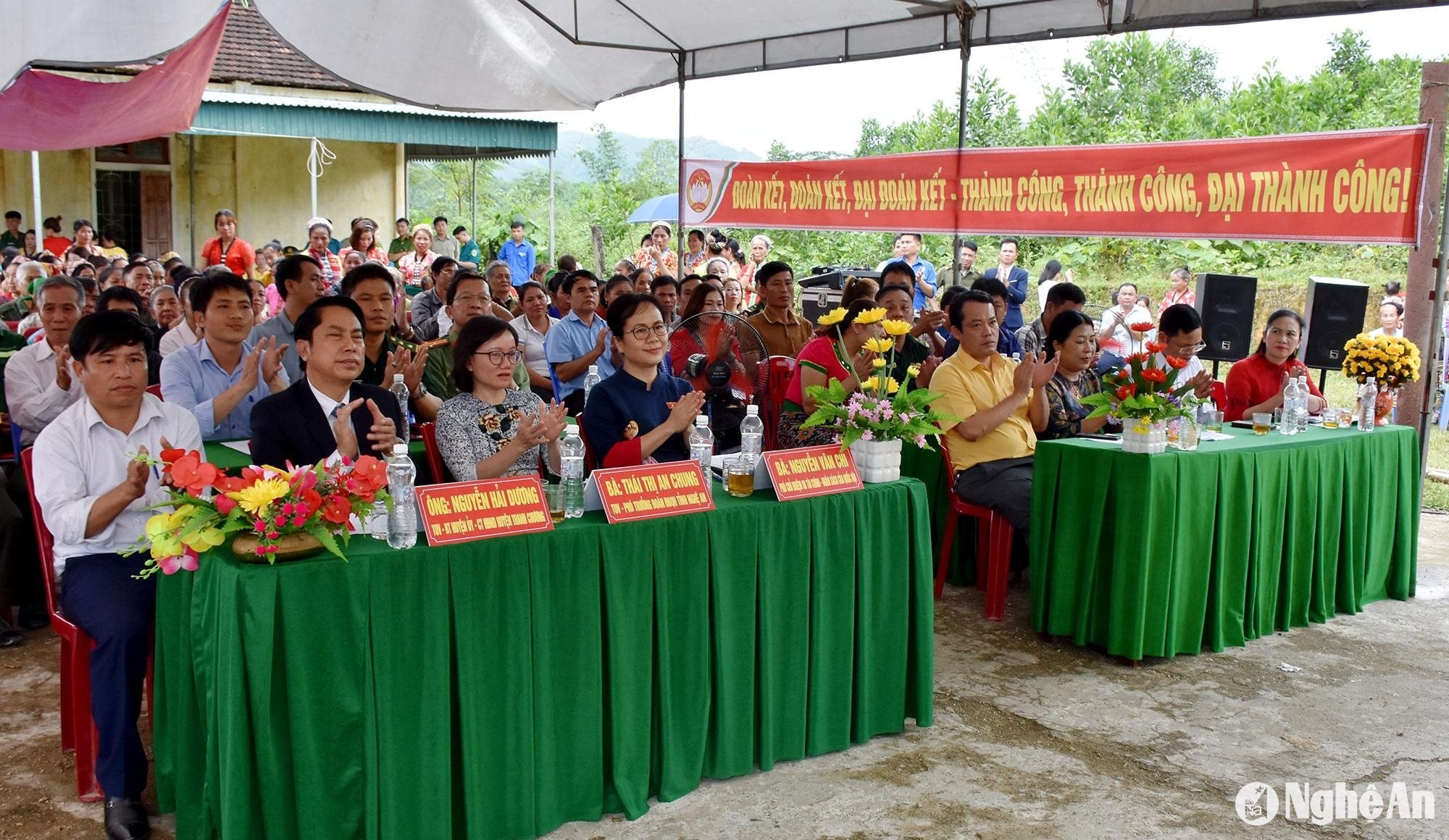

“Electors”, “professional voters”, “representative voters” are phrases often used to refer to the “familiar, known by name” voters who regularly attend meetings with voters. Through direct observation and reporting of meetings of elected representatives meeting with voters, it is easy to see that if the representatives do not have high-ranking positions or key leaders at all levels, they will rarely attract the participation of all classes of people. The voters attending are mainly secretaries, village chiefs, the elderly, retired cadres, local cadres and civil servants, etc. There are not many voters who really want to meet with representatives.
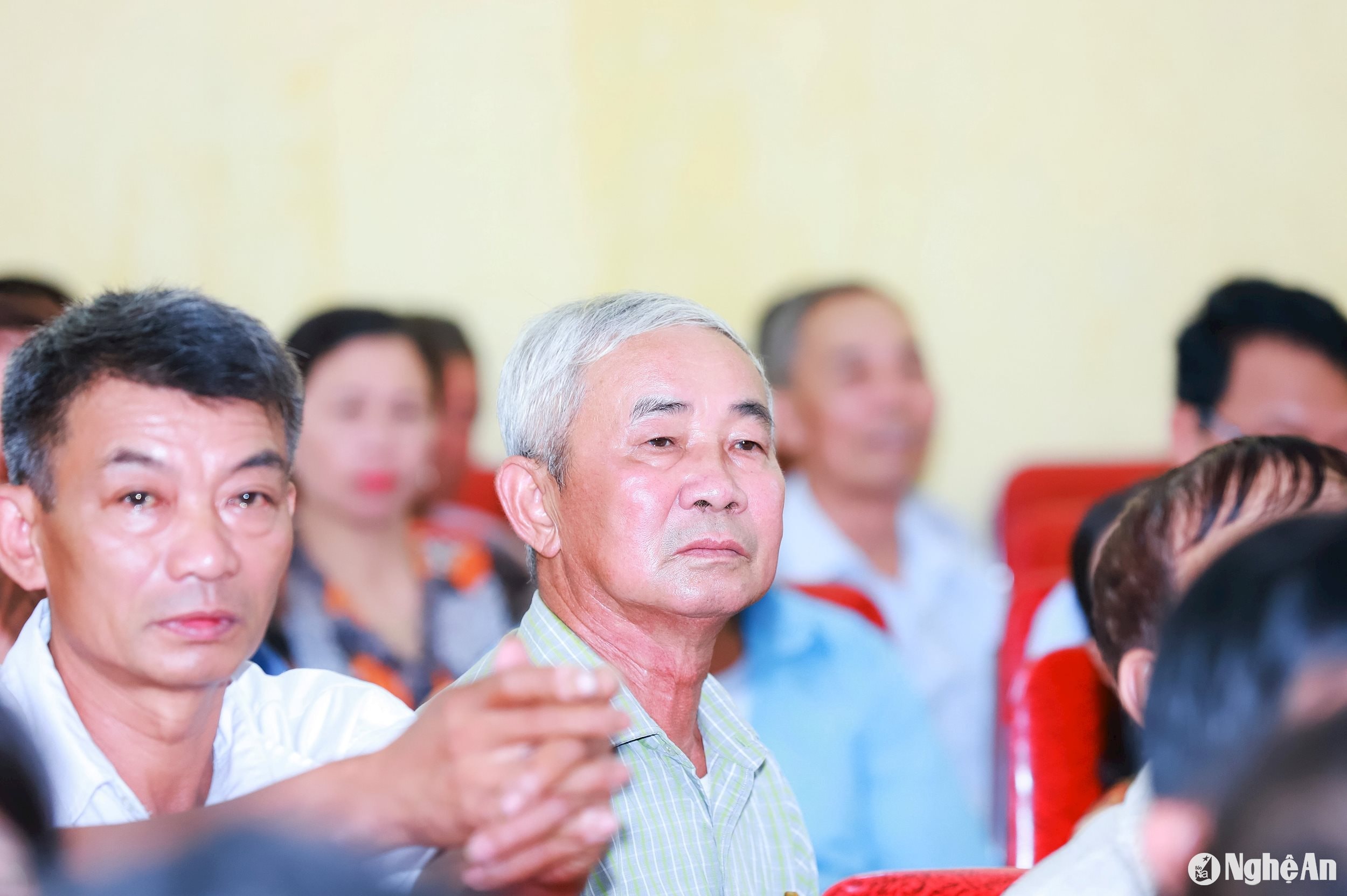
Chairwoman of the Fatherland Front Committee of Nam Son Commune (Do Luong District), Nguyen Thi Phuong Dung, reflected: In reality, in the locality, the meetings with voters from the district People's Council delegates and above, the participants are mainly cadres, civil servants, non-professional activists at the commune and hamlet levels; while the number of voters is very small, only about 10%. The reason is that people of working age are busy working. On the other hand, through the media and social networks, people have promptly grasped the policies, laws and their rights. Another reason is that the state of degradation and law violations among officials also reduces people's trust; in addition, many legitimate aspirations of voters have been proposed many times but have not been resolved, so they do not want to go anymore, do not want to petition anymore, such as in Nam Son, the current state of degraded power grid infrastructure despite many petitions but the resources of the Electricity industry cannot meet them.
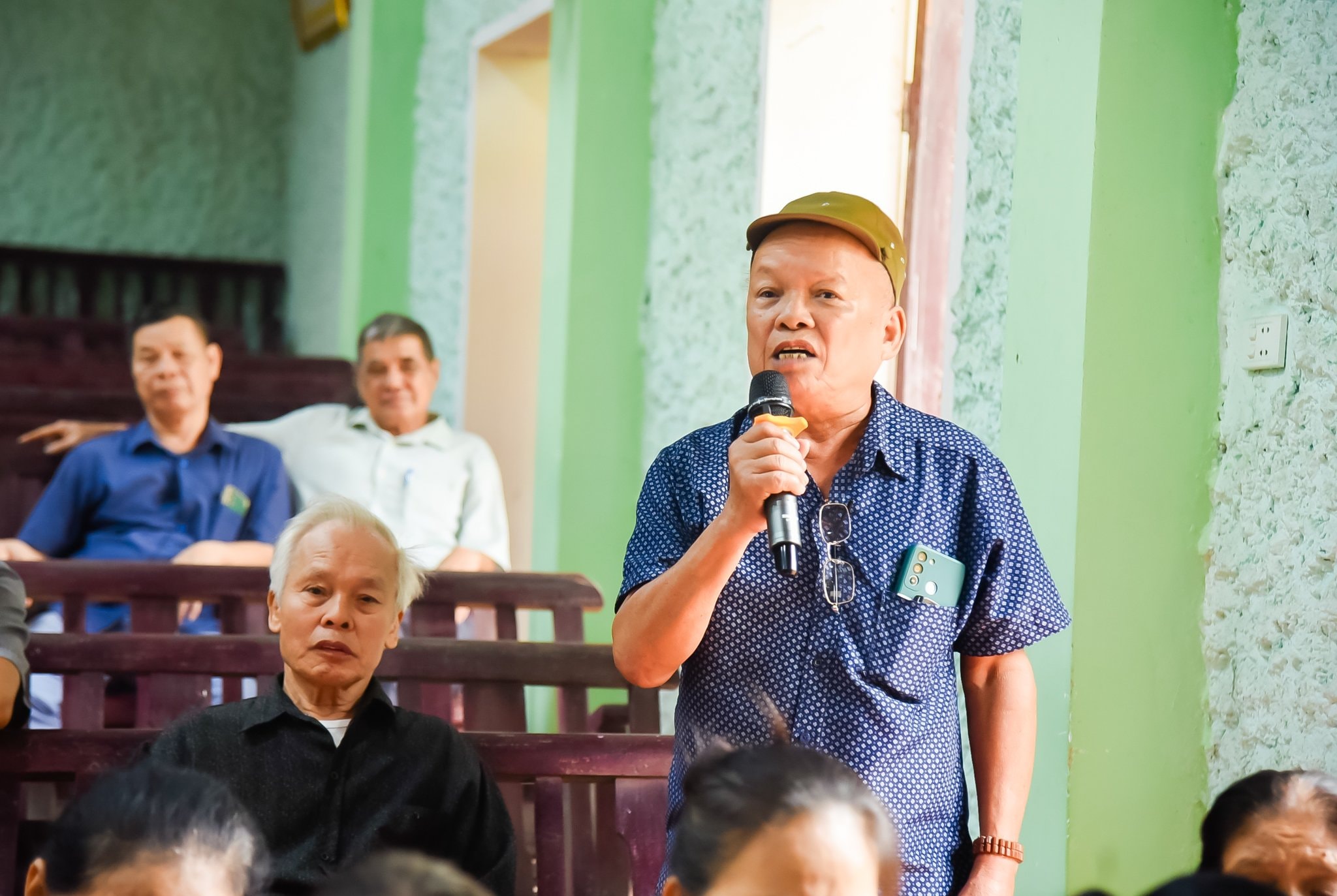
“Some places where voters meet have not attracted the participation of a large number of voters in hamlets, blocks, and villages, people of working age, and the voters are mainly village, block, and village officials, organizations, the elderly, and “professional voters”. Therefore, the recording of voters’ opinions and recommendations is not comprehensive and comprehensive. Many voters make recommendations on issues directly related to people’s lives, under the authority of commune and district levels, and there have not been many comments contributed to the content and agenda of the session, and recommendations under the authority of central agencies”, the report of the National Assembly Delegation of Nghe An summarizing the Joint Resolution has frankly pointed out the shortcomings and inadequacies.
Head of the National Assembly Standing Committee's Petition Committee Duong Thanh Binh, when presenting the report on Joint Resolution No. 525/NQLT/UBTVQH13, also assessed: "In some localities, there is still a situation where many meetings of voters by delegates have not really attracted the participation of many classes of people. Voters attending are still mainly the elderly, retired officials, district, commune, village and hamlet officials, and those who have complaints about the regime and policies. Therefore, the situation of "electors", "professional voters", "representative voters", "voter delegates" is still common...".
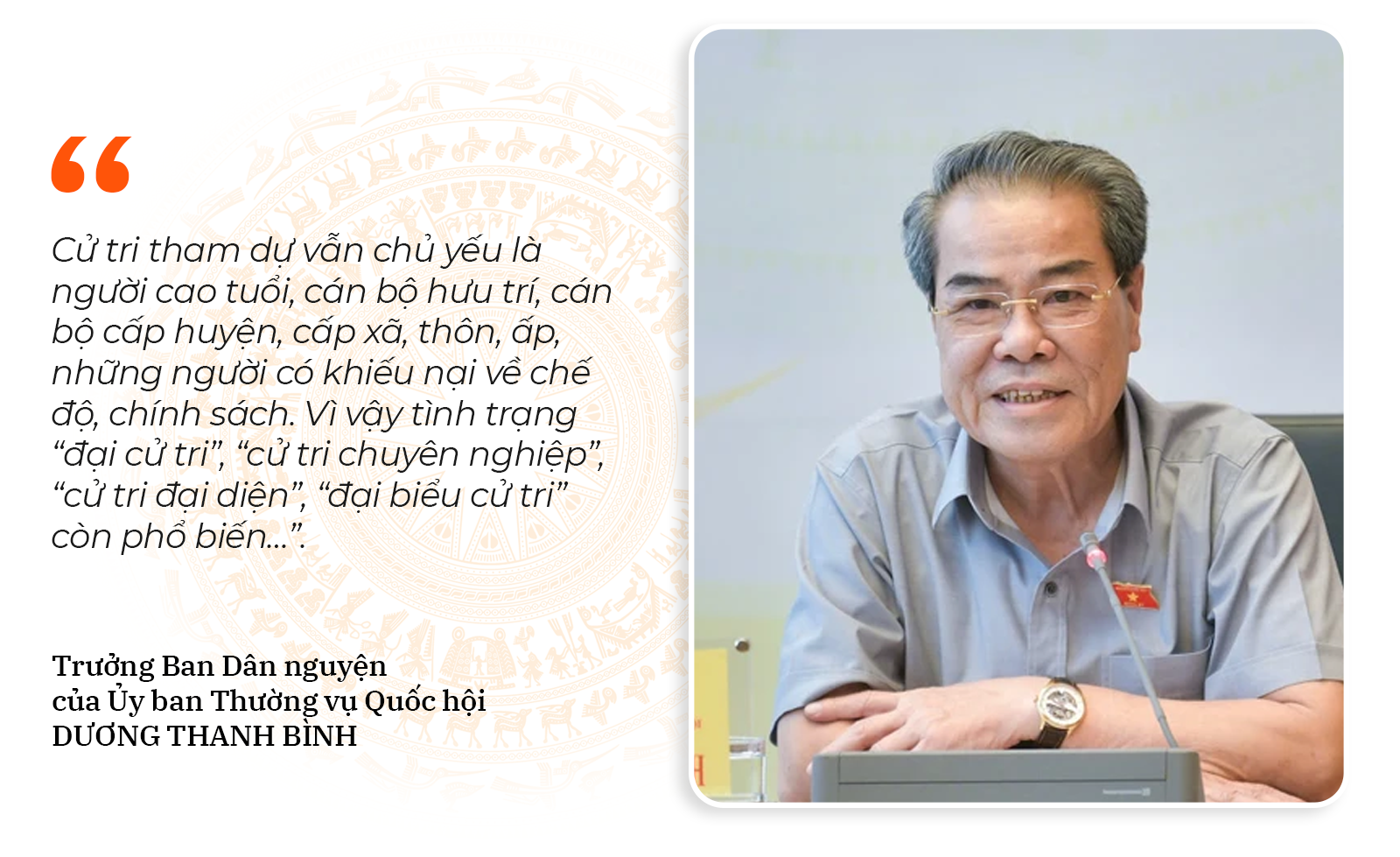
The Chairman of the National Assembly Law Committee, Mr. Hoang Thanh Tung analyzed: Other forms of voter contact such as at the place of residence, workplace or contacting voters by subject, by topic, by field, contacting voters outside the constituency of the National Assembly deputies running for election is still limited, which is one of the shortcomings and limitations mentioned in the report. The report accurately reflects the current situation.
According to the provisions of the Constitution, the Law on Organization of the National Assembly and the Law on Organization of Local Government, National Assembly deputies and People's Council deputies at all levels are "representatives of the will and aspirations of the People". The activities of voters' contact with deputies are the clearest manifestation of the role of "representatives" of elected representatives. Therefore, it is necessary to determine that voter contact activities are not only an obligation, but also a responsibility of deputies representing the will and aspirations of the People, of local voters with People's Council deputies and with voters nationwide with National Assembly deputies.
Therefore, the lack of flexibility and the incomplete and infrequent implementation of forms of contact with voters such as: before and after each session, on special topics, at the place of residence, etc., as prescribed, have led to the situation of "full-time representatives", meaning that National Assembly and People's Council representatives at all levels only meet with voters in their constituencies and the participants are only "electors", "professional voters", "representative voters". The consequence is that the meaning, role and position of "representatives of the will and aspirations of the People" as stipulated in the Constitution and law will be reduced.
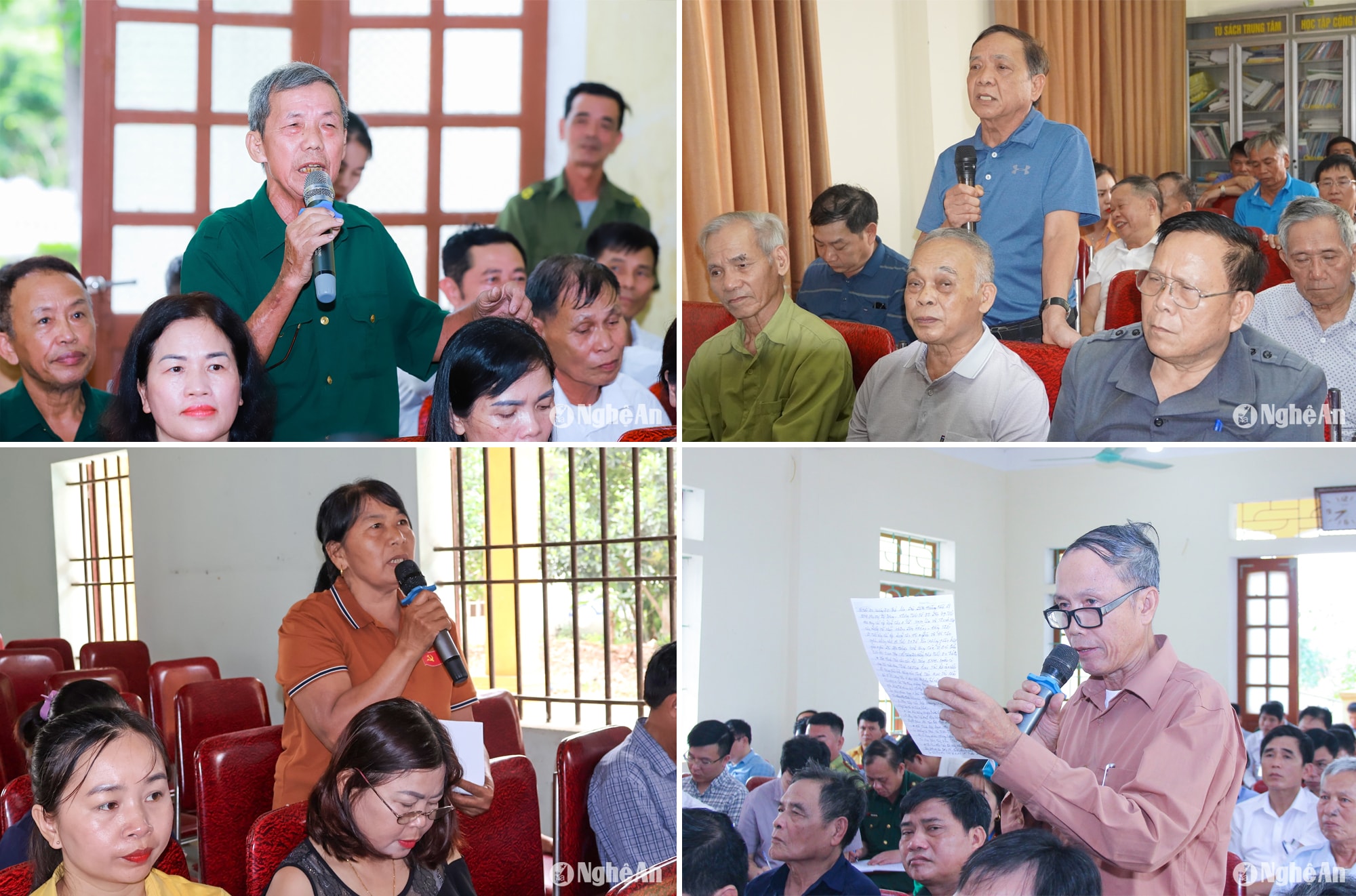
In practice, voter contact activities in recent years have seen many innovations in both content and form; however, these innovations have not yet reached the required level; leading to the failure to fully promote the role of the People as masters in participating in government building through "the highest representative body of the People, the highest state power body" (the National Assembly) and "the local state power body, representing the will, aspirations and mastery of the People (People's Councils); thereby contributing to the best implementation of the operating mechanism of our country's political system: "The Party leads, the State manages, the Fatherland Front and socio-political organizations are the core for the People to be masters".
To improve the effectiveness and substance of voter contact activities, breakthrough solutions are needed to comprehensively innovate both content and form.
Ensuring that meetings are not only an opportunity for representatives to listen but also an opportunity for people to truly participate in the process of building policies and laws, accurately reflecting their thoughts and aspirations. Only when elected representatives become a solid bridge between voters and authorities, can this activity truly play its role, contributing to strengthening people's trust in the political system and improving the quality of national governance. Accompanying voters is not only a responsibility but also a sacred mission of those who represent the will and aspirations of the people.
